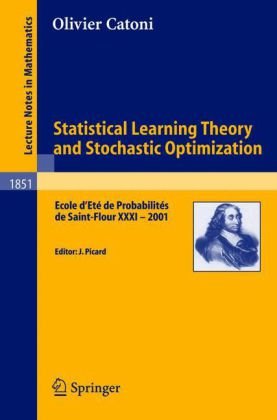

Most ebook files are in PDF format, so you can easily read them using various software such as Foxit Reader or directly on the Google Chrome browser.
Some ebook files are released by publishers in other formats such as .awz, .mobi, .epub, .fb2, etc. You may need to install specific software to read these formats on mobile/PC, such as Calibre.
Please read the tutorial at this link: https://ebookbell.com/faq
We offer FREE conversion to the popular formats you request; however, this may take some time. Therefore, right after payment, please email us, and we will try to provide the service as quickly as possible.
For some exceptional file formats or broken links (if any), please refrain from opening any disputes. Instead, email us first, and we will try to assist within a maximum of 6 hours.
EbookBell Team

4.8
44 reviewsStatistical learning theory is aimed at analyzing complex data with necessarily approximate models. This book is intended for an audience with a graduate background in probability theory and statistics. It will be useful to any reader wondering why it may be a good idea, to use as is often done in practice a notoriously "wrong'' (i.e. over-simplified) model to predict, estimate or classify. This point of view takes its roots in three fields: information theory, statistical mechanics, and PAC-Bayesian theorems. Results on the large deviations of trajectories of Markov chains with rare transitions are also included. They are meant to provide a better understanding of stochastic optimization algorithms of common use in computing estimators. The author focuses on non-asymptotic bounds of the statistical risk, allowing one to choose adaptively between rich and structured families of models and corresponding estimators. Two mathematical objects pervade the book: entropy and Gibbs measures. The goal is to show how to turn them into versatile and efficient technical tools, that will stimulate further studies and results.